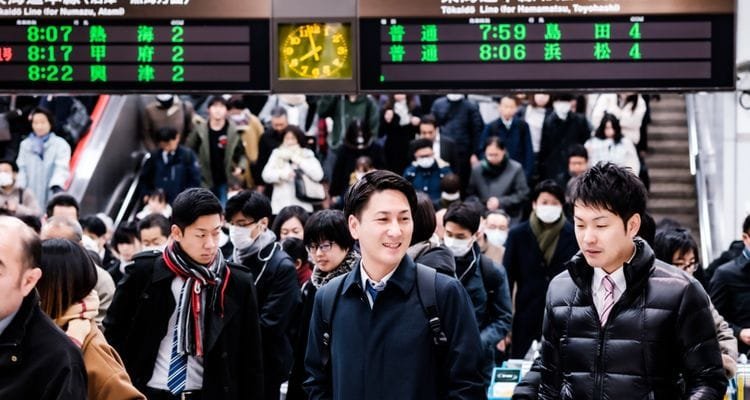[ad_1]
Following the unanimous decision by the Japan Government to allow 85 per cent of male workers to take paternity leave in order to take care of the falling birth rate, Japanese men are too scared to take the leave due to potential repercussions from their employers.
Japanese men are entitled to four weeks of flexible paternity leave, on up to 80 per cent of their salary, under a bill passed by the Japanese parliament in 2021.
The Government feels if paternity leave is fully embraced there would be an increase in their population.
Recall that Japanese Prime Minister, Fumio Kishida on Friday pledged to implement the necessary measures to allow 85% of male workers who have a child to take paternity leave by fiscal 2030 to tackle the falling birthrate.
Kishida who spoke at a press conference said that his government will also take steps to push up wages for young workers and boost economic assistance to them to create an environment conducive to raising their children free of concerns
According to Global Media Reports, a child riding on his father’s shoulders smiles as they stroll through a park lined with yellow autumn-touched leaves, which is the typical image of a Japanese “Ikumen”.
Japanese authorities have widely promoted the term ‘Ikuji, meaning care for children, and Ikemen, referring to cool-looking men in the past decade to combat the country’s notoriously long working hours that have not only deprived workaholic fathers of family time and stay-home mothers of careers but have helped drive the birth rate to one of the lowest in the world.
To seize the “last chance to reverse” the situation, Prime Minister last week unveiled a raft of policies, including boosts to child support and a pledge to lift the number of male workers taking paternity leave from the current 14 percent to 50 percent by 2025, and 85 percent by 2030.
But some in the world’s third-largest economy which has long struggled with a falling fertility rate and an aging population are skeptical the plan can really move the needle.
Makoto Iwahashi, a member of POSSE, a labour union dedicated to younger workers, said while the government’s plan was well-intentioned, many Japanese men were simply too scared to take paternity leave due to potential repercussions from their employers.
Related
[ad_2]
Source link



